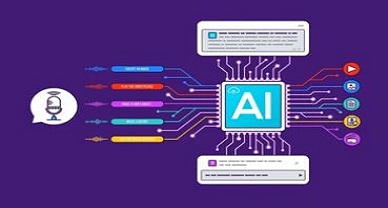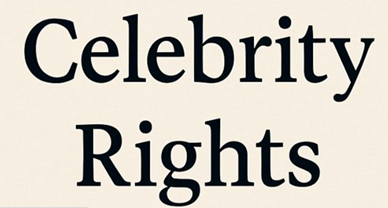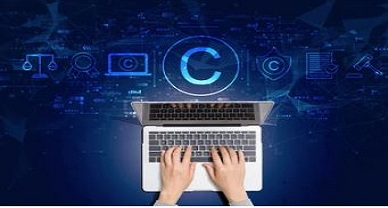Advent of AI Voice Generation and Threat to Personality Rights
Main Body:
Although AI voiceovers of celebrities singing trending reel audios might be entertaining, they have opened a plethora of legal ambiguities. The development of Artificial Intelligence, from being able to create edited photos to now generating deepfake videos that cannot be distinguished from real videos, has created an imminent threat to intellectual property rights and personality rights specifically.
Introduction
Personality rights of an individual include their likeness, images, name, voice, etc. There are no separate legal provisions for these rights and they have been included under the existing Intellectual Property laws. Personality rights, in India have developed through a plethora of cases that have laid down the jurisprudence for the same.
AI has developed to the level wherein it can now successfully imitate human voices and also generate voices deceptively similar to specific individuals. This is prone to gross misuse and there is ambiguity regarding the legality of the same since there is a vacuum in the existing legal framework of IP laws with regards to AI generated content. There have been several instances of deepfake videos being used to commit crimes like fraud and extortion. Such deepfake videos are used to impersonate individuals, thereby violating their personality rights.
The question that then arises is whether only celebrities or known individuals have the intellectual property rights over the characteristics of their personality or every person? How can such rights be enforced under the existing legal framework?
Personality Rights in India
Personality Rights are the rights to the characteristics of one’s personality (image, likeness, voice, etc.) and includes both commercial and non-commercial aspects. In this technologically advanced age, success or failure of a business depends heavily on the marketing strategies that have been adopted. A very common way of marketing a product is to have it advertised and endorsed by celebrities that the public holds in good opinion. The concept of personality rights has many a times come to the aid of celebrities and public figures wherein their image or likeness was misappropriated to sell products that they did not endorse.
[Image Sources: Shutterstock]
In D.M. Entertainment v. Baby Gift House,[1] Indian courts dealt with personality rights for the first time. Daler Mehendi, a known singer and the plaintiff in the present case, had a registered trademark over the letters “DM” and established a business called “D.M. Entertainment Pvt. Ltd.”. The dispute arose due to the defendant selling Daler Mahendi inspired dolls which also sang lyrics of the plaintiff’s song. The court held that since the plaintiff was such a well known artist, the identity, reputation and persona of the plaintiff had assumed the nature of being a “quazi property” that had economic value associated with it. Unauthorized use of such persona would classify as false endorsement. The concept of passing off under trademarks law was used to provide relief to the plaintiff.
In Amitabh Bhachchan v. Rajat Nagi and Ors.,[2] Amitabh Bachchan contended that his name, likeness and voice was being misused to circulate fraudulent messages on Whatsapp for commercial gain in lottery scams. Recognizing Mr. Bachchan’s celebrity rights, an ex-parte injunction was granted to protect his public image.
The scope of personality rights were further widened to also include manner of speaking, gestures, dialogue delivery, signatures, etc. in Anil Kapoor v. Simply Life India and Ors.,[3]. The main objective of protecting personality rights was to ensure that the reputation and fame of the individual remains untarnished.
Personality rights are vested onto those individuals who are publicly known and have attained the status of a celebrity since it is based on the premise of preventing deception, confusion and falsity by misrepresenting and impersonating these individuals.[4] It has to be proved that the plaintiff is identifiable to show a prima facie infringement of personality rights. The remedies available for a lesser known person for the infringement of his personality rights exist in legal lacunae and there is not settled law as to that regard. This points towards an inadequacy in the existing IP legislation as even the common man is susceptible to misrepresentation and impersonation through AI Generated audio-visual content and the remedies available are insufficient.
Remedies Available under Existing Laws
There are no specific laws that deal with the infringement of IP Rights of individuals whose identity has been impersonated through the use of Artificial Intelligence, but provisions of the IT Act 2000 and existing laws under the Trademarks Act, 1999 and the Copyright Act, 1957 come to the aid of the plaintiff.
AI generated voice being used to fraudulently misrepresent or impersonate an individual would fall under the ambit of Section 66D and Section 66E of the IT Act, 2000. Section 66D describes the punishment for cheating by personation by using computer resources or any communication device. This would cover offences wherein AI generated likeness of an individual’s voice or image is misappropriated.
In cases wherein AI is used to morph images and to create obscene images using a person’s likeness, Section 66E would apply which describes the punishment for the violation of privacy wherein images of a person’s private areas, including naked or undergarment clad genitals, pubic area, buttocks or female breasts, are published or transmitted electronically.
The IT (Intermediary Guidelines and Digital Media Ethics) Rules place responsibility on the Social Media Intermediaries to ensure that no prohibited content is allowed to be published or circulated on their platforms. If such content is not taken down within the prescribed time, the social media intermediaries would be liable for the same.
In cases wherein copyrighted content is used or altered to create deepfake audio-visual content, Section 51 and 52 of the Copyright Act that deal with infringement would come into the picture. These sections would, however, only be applicable if the original video or audio has been copyrighted.
The concept of passing-off under Trademark law can be applied if the person concerned is a well-known figure. Passing-off refers to misrepresenting someone else’s goods as one’s own. It is a common tort law aspect and can be used for unregistered trademarks. Even in cases wherein there is no commercial aspect to the misuse of one’s likeness, because the persona of the individual is in itself a brand and carries public goodwill, it would be considered passing-off if such likeness is used without authorization.
For celebrities, aspects of their personality are such an integral part of their public persona and are deeply knit with their reputation and good will. Any infringement or misuse of the same is bound to cause harm to their public image and their likeness is prone to be misused for wrongful commercial gain through false endorsement. In Mr. Anil Kapoor’s case, his likeness was used to create deepfake videos of him speaking derogatory language which caused damage to his public reputation. It is sufficient to prove that the concerned individual is an identifiable celebrity and proving damage caused is not an essential.
Conclusion
The current legislations protecting intellectual property rights over one’s own voice, images and likeness only extend to well-known public figures. The common man has only provisions under the IT Act and the Indian Penal Code as relief against such misuse of his likeness. Personality rights must be treated with a different approach than considering one’s likeness as property as the object concerned is so intrinsically connected with oneself. The Copyright Act can only prevent infringement if the generated content is based on copyrighted materials. The aspect of ownership in this regard narrows the scope of the application of Copyright Act.
With the advent of technology, the laws governing Intellectual Property Rights also need to pick up pace and change with the changing times. New challenges in Intellectual Property Law are cropping up, with content generated by AI coming into the picture. Questions like who owns rights to AI generated content, whether an AI generated imitation of one’s voice or image is infringement of IPR remain unanswered by the existing legislations. AI generated content is prone to gross misuse and the consequences of not having adequate legal protection of personality rights could be grave.
Author:- Sumedha Kashyap, in case of any queries please contact/write back to us at support@ipandlegalfilings.com or IP & Legal Filing.
References:
https://www.thehindu.com/news/national/regulating-deepfakes-generative-ai-in-india-explained/article67591640.ece
https://www.wipo.int/export/sites/www/about-ip/en/artificial_intelligence/conversation_ip_ai/pdf/ind_a.pdf
https://www.nlunagpur.ac.in/PDF/Publications/5-Current-Issue/4.%20PROTECTION%20OF%20PERSONALITY%20RIGHTS%20IN%20INDIA.pdf
[1] CS (O.S.) 893 of 2002 (Del) (India).
[2] CS (COMM) 819 of 2022.
[3] CS (COMM) 652 of 2023.
[4] Shivaji Rao Gaikwad (also known as Rajnikanth) v. Varsha Productions,2015 (62) PTC 351 (Madras).



